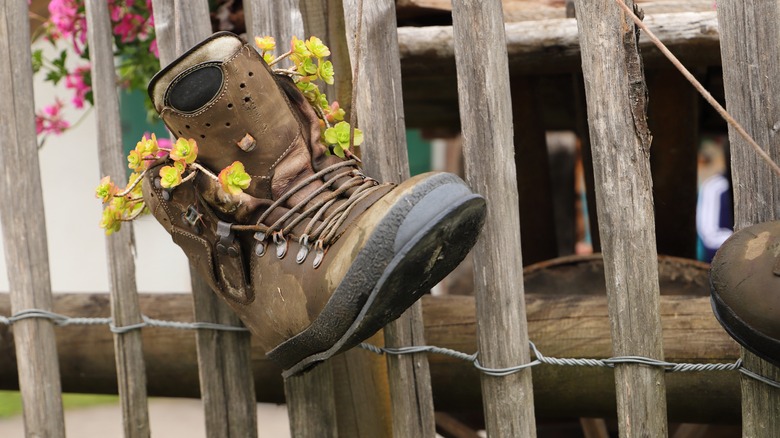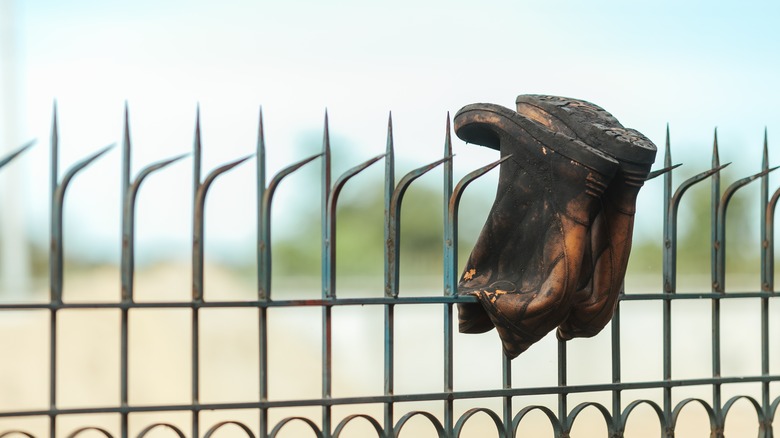What It Means If You See A Boot Hanging On Someone's Fence
Approximately 12,000 years ago, long before we could find our grocery essentials at the store, we relied on agriculture — more specifically, farmers. Hunter-gatherer culture quickly turned into farming settlements, where farmhands began wearing boots, inventing communicative hand signals, and creating a number of traditions that have now existed for centuries. Today, there are over 2 million farms in the U.S. alone, with 98% categorized as family-owned. With these smaller and more close-knit farms, traditions are still an essential part of farm life, as seen by features like a star on the outside of someone's home.
One tradition that's remained tried-and-true to farmers — but may be confusing for a passerby — is what it means when a boot is hung from a fence. If you've stumbled across a pair of boots hung up by their laces on a farm, you may be wondering why, and we're here to answer your question. There are a few common reasons why it might be there: To honor a deceased horse, the memory of a ranch helper, or to signal their presence at home. Let's dive in.
There are a few reasons behind a boot on the fence
Farmers develop a close relationship with their horses, especially those that have been on the farm for a long time. When a rancher loses a prized horse — often due to a race, sale, or even death — a boot on the fence shows respect for the horse that was lost. Similarly, when another rancher or farmhand passes away, a boot is placed on a fence to honor their life and work on the farm. If you come across multiple boots in a row, it's not just for show; the farm may have lost an animal and farmhand at once.
There are other reasons that the footwear might be turned into an outside decoration in this manner, however. Once a farmer has worn out their boots, they may hang one shoe on the fence as a tangible symbol for their efforts, especially after a long day's work. Before electricity, boots were placed on fences to communicate that the work day is over and the farmhands have gone home, and in the era before cellphones — since agriculture is the pillar of many rural communities — the farmer might have placed the boot to let community members know where they are. If the boot faced towards the property, the farmer was home. If it faced in the opposite direction, the farmer was away. It's possible some farmers may be maintaining this tradition today, or at least honoring the past, much like how American barns are still often painted red.

